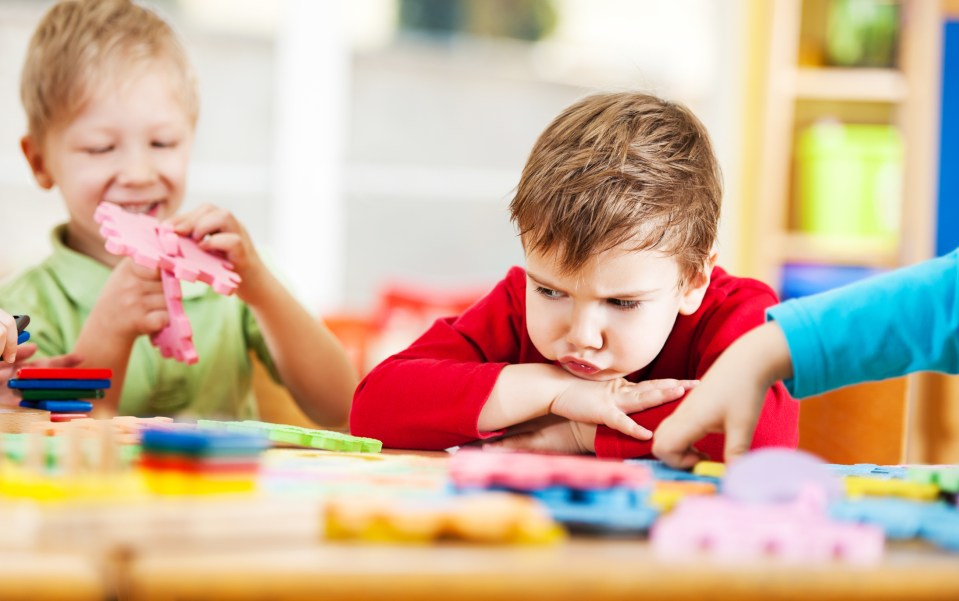The 15 Signs Your Child Is Stressed and How to Help








CHILDHOOD should be the most carefree time of our lives.
More and more children and teenagers are experiencing anxiety and stress. Mental health charity Mind estimates that one in six young people in England aged between five and 16 have a problem.
A new report has found that increasing numbers of young people in England are reaching ‘crisis point’ and being admitted to hospital for their mental health.
Natalie Costa is the founder of Power Thoughts, a coaching service that helps children become more confident, resilient and robust.
She said: “Life is faster and more demanding for today’s children, with parents less able to shield young people from the world. They have also experienced the disruption of lockdowns and have been thrown back into education full force, rather than being given time to recover emotionally and socially.”
Now that the new school year has started, Natalie’s quiz can help you gauge your little ones’ stress levels.
Calculate the score and follow her advice to help your child eliminate stress from his/her life.
How to approach our quiz
SCORE 2 FOR “YES”, 1 FOR “SOMETIMES”, 0 FOR “NO”
NATALIE says: “Answer the questions by thinking about them for a few weeks – or just observe your child for a while before answering the questions.
Keep in mind that at certain stages of life, such as teenagers, children have more intense and complex emotions and want to push boundaries.
“But don’t automatically consider all changes as hormones.
“Base your answer on your child’s usual behavior compared to now, taking into account any major events such as exams or a bereavement.”
Take our quiz
1. Does your child go straight to his/her room after school, ask to eat upstairs, and avoid participating in family activities such as watching television?
2. Does your child get angrier than usual when he/she loses during sports or board games with his/her siblings or friends?
3. Does your child say during mealtime that he/she is not hungry, or that he/she no longer likes certain things that he/she used to like?
Or is it that they snack a lot more than normal and stuff themselves with food all the time?
4. Does your elementary school-aged child ask you for help with basic tasks he or she can normally do on his or her own, such as dressing or cutting food?
5. IF you have an older child, does he or she find themselves scrolling through social media a lot more than usual? Or, if your child is younger and doesn’t have a phone, does he or she want to watch YouTube videos all the time?
6. IF one of their favorite T-shirts was in the wash while they were at a birthday party, would they become disproportionately angry and upset compared to normal?
7. Your child is having difficulty with a task, such as doing homework, reading, or building a Lego model.
Do they call themselves ‘dumb’ and ‘stupid’?
8. Does your child not talk to you after school about his/her friends or his/her day?
When you ask them questions, even about their favorite interests and activities, do you get monosyllabic answers?
9. Is your child or teenager less proud of his or her appearance and neglecting self-care, not washing themselves, not wanting to go to the hairdresser or not wanting to brush their teeth?
10. Do they complain about going to school or try to get out of it, when before they enjoyed it and didn’t make a problem of it?
11. Is your child sleeping a lot more than usual, finding it difficult to fall asleep at night, or waking up at odd times?
If they are younger, have they recently wet the bed?
12. Do they regularly complain of stomach aches, leg pain or headaches?
13. IF they have to go to a friend’s house to play, go to a club or go to a social event that they normally enjoy, do they say they don’t want to leave you or do they refuse to go unless you go too?
14. DO they get angry more quickly at their brother or sister, or even at friends, even if it is something small, like taking away a fun toy or being bullied?
15. Does your child no longer feel like playing and having fun?
Do they no longer want to get out toys or run around outside with a football?
Do they follow you around the house instead of reaching out to their siblings and peers?
Score 10 or higher? Tips to lighten the load
IF you scored nine or lower, that’s good news. It seems your child’s mental health is in good shape.
But children who score ten or higher may be experiencing stress – and need your help.
Stress may seem like an emotion that only affects adults, but in today’s challenging world, more and more children and young people are struggling with it.
Signs may include a change in appetite, sleeping more or less than normal, withdrawing from others, and being more competitive with oneself.
These are behaviors that parents might dismiss as picky eating, a growth spurt, or puberty, but in reality they are physical manifestations of their mental stress.
Certain situations, such as approaching exams, a sick family member or a move, are clear trigger points.
But if these are not in the picture, think of other causes.
I would also try these six strategies to address the root cause and symptoms.
LIGHTEN THEIR BURDEN
SEE how busy their schedule is.
Does your child have a busy life and is his/her time strictly regulated?
Even though kids love their after-school activities, they also need space to relax and recharge.
Too many social obligations, such as birthday parties, can cause stress and overstimulation.
Discuss with them what can be eliminated and allow for regular downtime.
TURN OFF SCREENS
Being online 24/7 is unhealthy, regardless of your age.
For teens, seeing difficult world news and being bombarded with notifications that they feel they have to respond to can be a source of stress.
Set clear limits on the use of phones and other devices, and on the use of social media, for young children.
Make sure they know they can open up to you and ask questions.
PAY ATTENTION TO THE LITTLE THINGS
SMALL problems can be a symptom of bigger problems.
If a young child panics about breakfast, write it down and discuss it later when you are both calm.
Use non-accusatory language, such as, “I noticed you were upset this morning because your pancakes weren’t good. Is something else going on?”
The fact that you are paying attention gives them the power to voice any concerns they may have, perhaps concerns they didn’t even realize they had.
Also ask if they want you to just listen, or if they need help solving the problem.
Sometimes validating is enough.
TAKE TEN
CONNECTION is your capital with children.
Take ten minutes a day to put yourself in their world and show interest, without being interrupted and being present.
This will increase their resilience and help you better understand their concerns.
It doesn’t have to be straight from heart to heart.
Playing a game together or eating together strengthens your bond, making the other person feel safe to confide in you.
BREATHE IT IN
EVERYONE needs tools to reduce everyday stress – children and parents alike.
Encourage them to exercise and spend time in nature to relax, such as dancing to music after school or taking a walk in the park.
Teach them breathing techniques to calm their bodies and minds when anxiety rises.
I like a simple 16 second box breathing because it relieves the fight or flight response.
Inhale for four counts, hold your breath for four counts, exhale for four counts, and relax for four counts.
INCREASE THEIR VOCABULARY
THE more young children can express their problems, the easier it is for them to deal with them.
Research shows that developing emotional granularity – the ability to accurately identify and differentiate between feelings, using specific words – makes children more resilient later in life.
Rather than encouraging your child to say, “I feel stressed,” explore how this manifests itself.
Ask them if they feel jealous, overwhelmed, tired, worried – or something else entirely.











